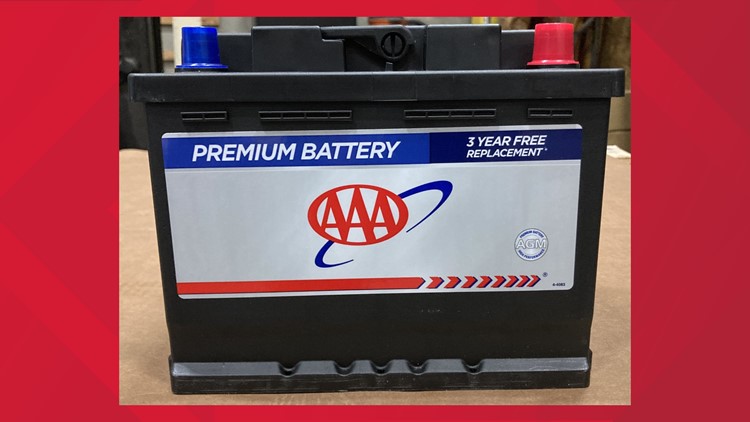BUFFALO, N.Y. — Earth day is Monday, April 22, and to celebrate AAA WNY and CNY is hosting a battery collection event.
Happening on Monday, April 22 until Wednesday, April 24 from 8 a.m. to 5 p.m. people will be able to drop off their old automotive or lead-acid batteries to the following Buffalo drop off locations
- AAA Western New York Fleet Operations, 505 Duke Rd., Suite 500, Cheektowaga
- Bellreng’s Towing and Automotive, 2131 Eggert Rd., Amherst
- Transit Auto & Detail, 1721 Transit Rd., Elma
- MONDAY 4/22 ONLY: AAA Amherst Branch, 100 International Drive, Amherst
People may also get rid of their boat, and RV batteries but lithium batteries will not be accepted at the event.
According to AAA:
Did you know? Batteries are hazardous.
- Lead-acid batteries are considered hazardous material. Anyone handling a battery should wear protective eyewear and gloves. Proper handling prevents injuries. Because they can leak and emit hydrogen gas, batteries should not be exposed to an open flame.
- If improperly stored, a battery may leak, causing sulfuric acid burns and even explosions. Dumping an old battery can also hurt your pocketbook. Many states hand out tough fines and jail time for discarding lead-acid batteries anywhere other than an authorized collection or recycling center.
AAA replaces batteries on the go.
- Since 1998, AAA has dispatched mobile units to test batteries, and install new batteries on the spot, if requested. Technicians deliver spent batteries to recycling centers. AAA’s Mobile Battery Service is available in most areas. Request service via the free AAA Mobile App (www.AAA.com/Mobile), at www.AAA.com/Battery, or by calling 1-800-836-CLUB.
Batteries are a recycling success story.
- An automotive battery contains about 21 pounds of lead, three pounds of plastic and one gallon of sulfuric acid. When a spent battery is recycled, lead is re-smelted into new battery plates, acid is neutralized and reclaimed, and plastic is used to make new battery cases.
- The lead-acid battery industry was an early innovator of “closed loop” recycling and remains a leader in this efficient, economical process. This process reclaims materials from spent batteries and uses them in the production of new units.
- Lead costs are on the rise, so recycling spent batteries not only protects the environment but also reclaims valuable lead and plastic for manufacturing, saving energy and money on raw materials.
To learn more visit westerncentralny.aaa.com
Related Video:



